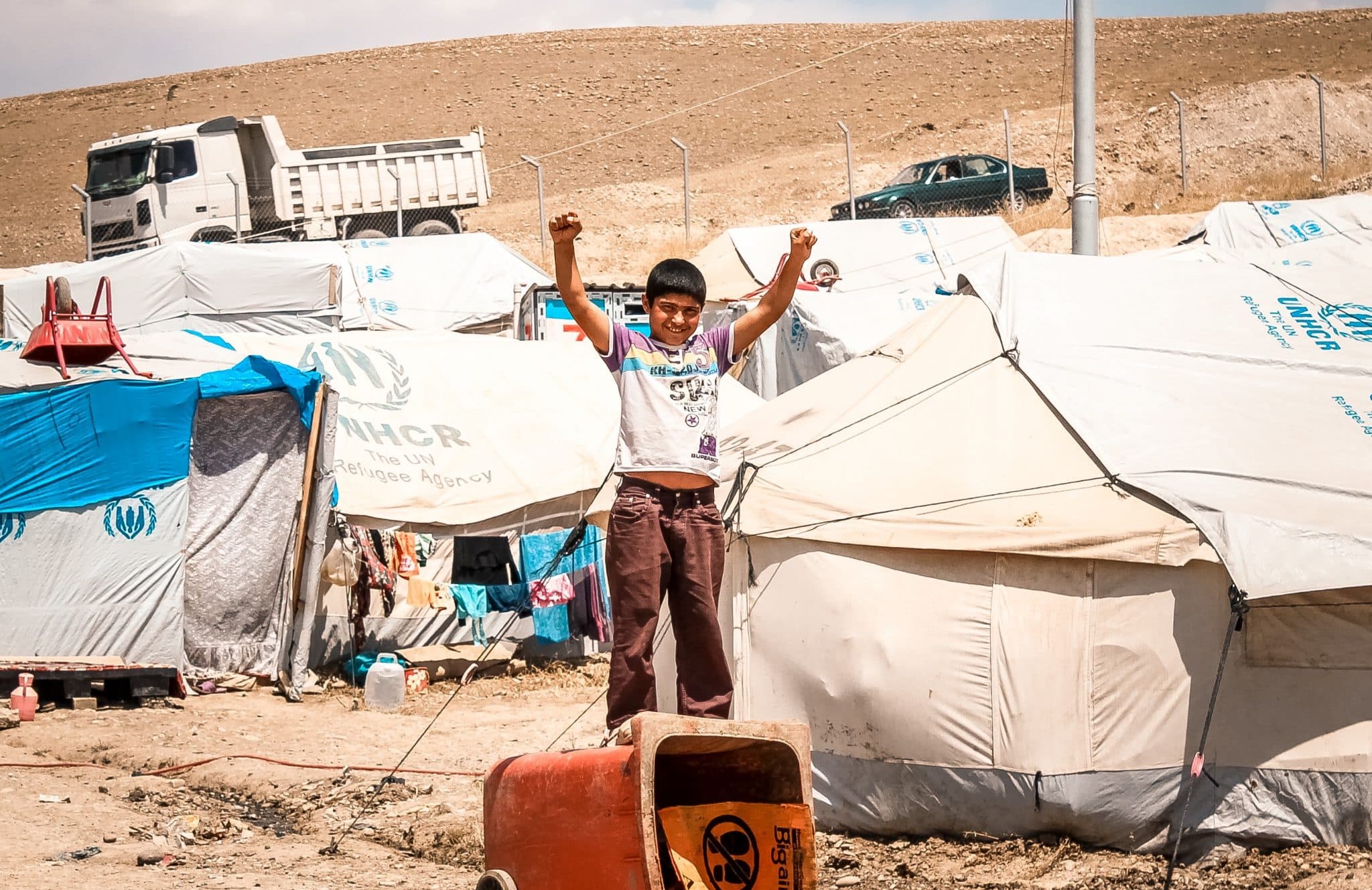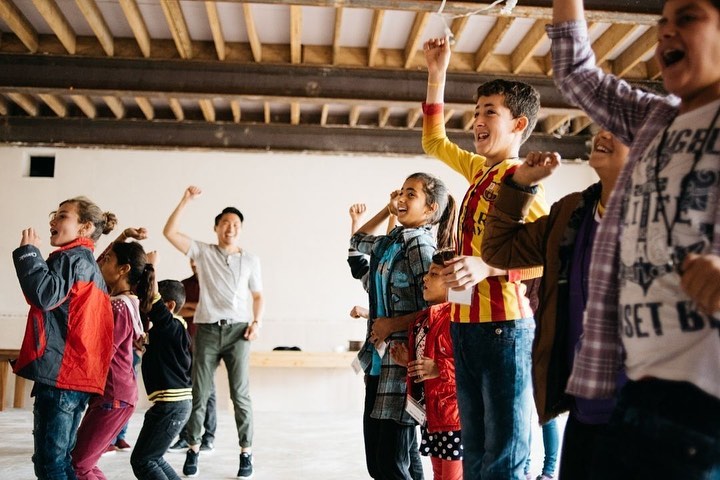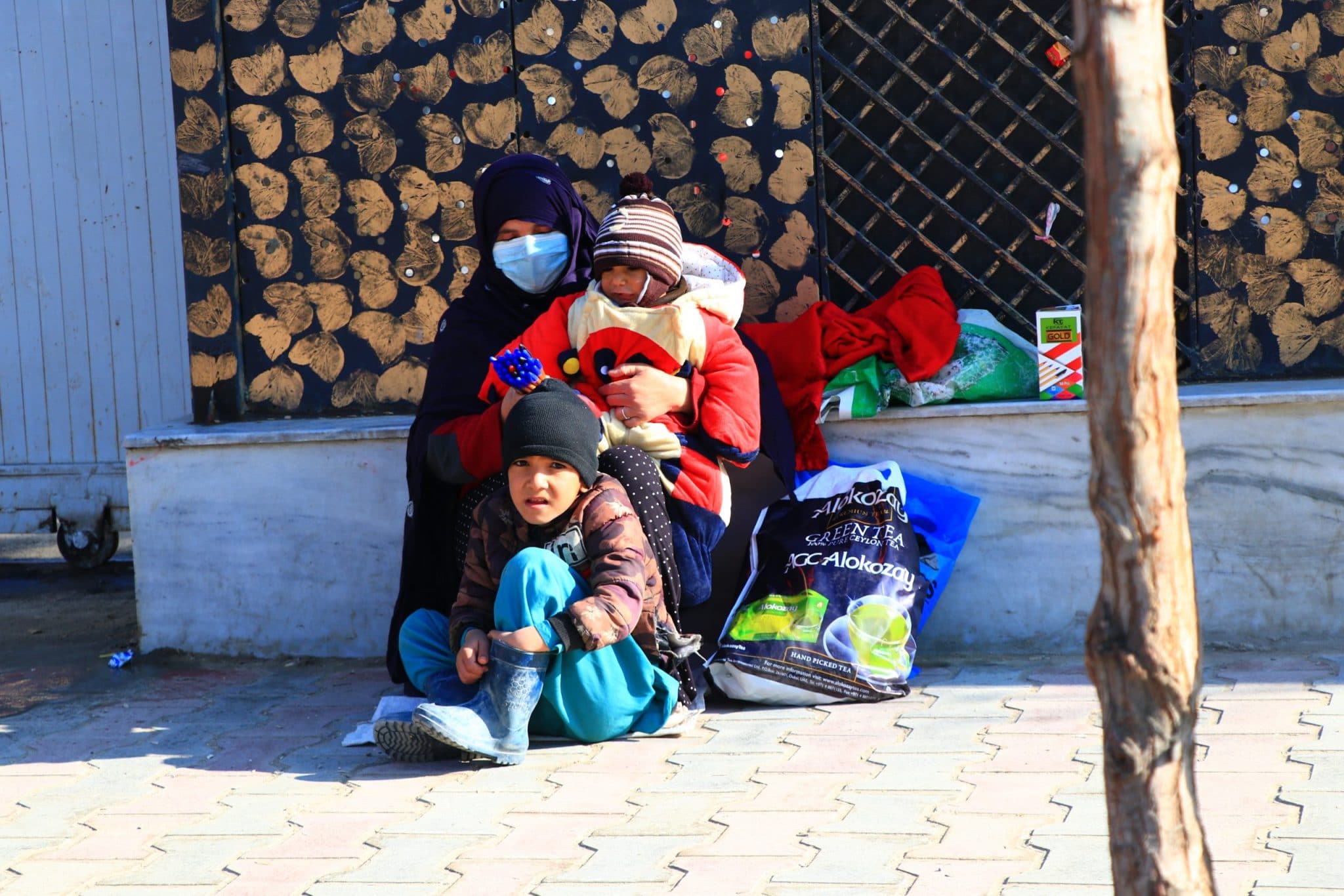Serving women and children under the Taliban: “Every day we stay alive is a miracle,” says National Director of World Vision in Afghanistan
by Tan Huey Ying // August 19, 2022, 4:37 pm
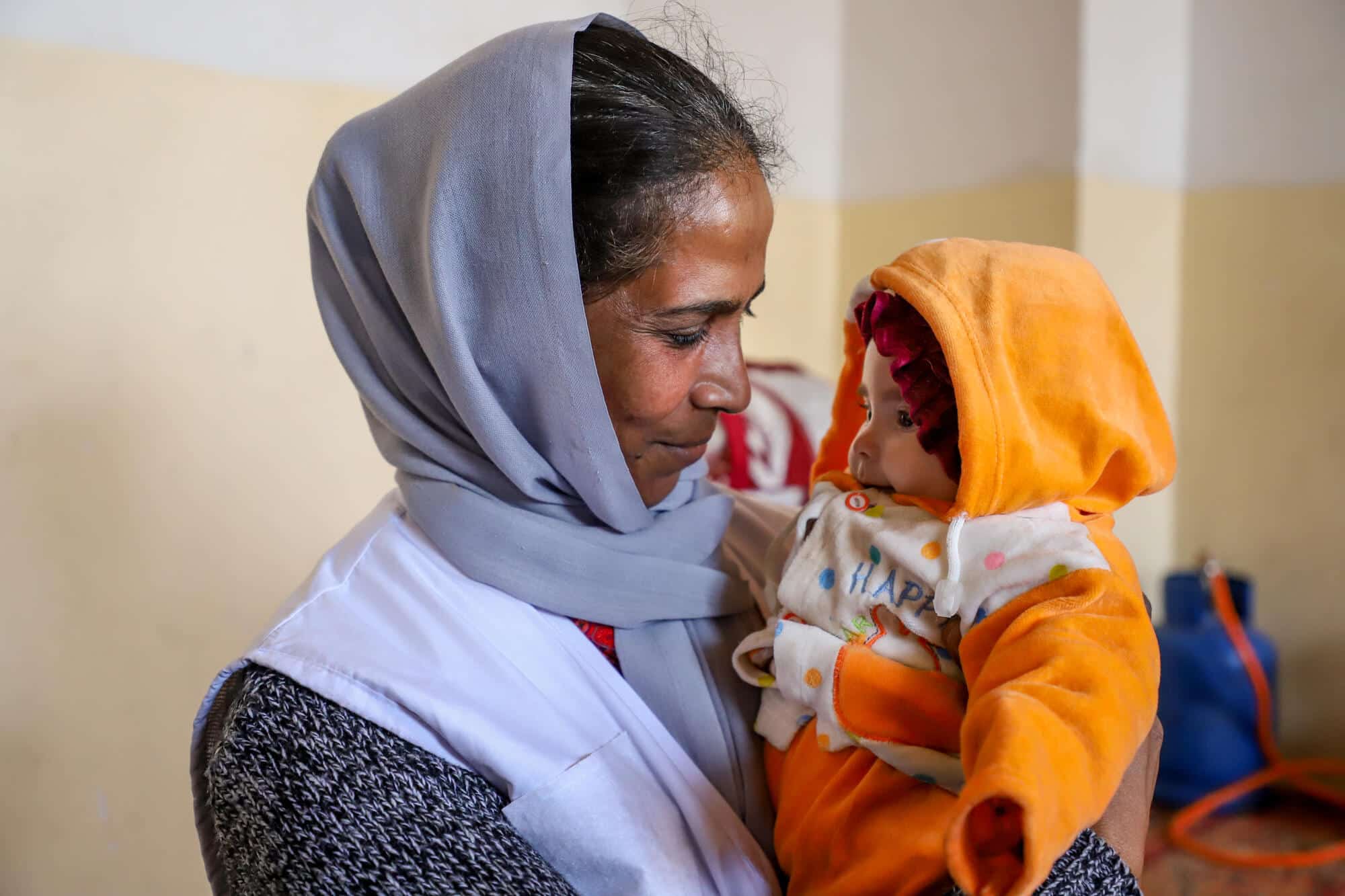
“Ultimately, there is no one I can go to for immediate help except God. No one else," says World Vision Afghanistan National Director, Asuntha Charles, who committed to stay in Afghanistan under the Taliban, in order to bring aid and hope to the Afghan people. All photos courtesy of World Vision unless otherwise stated.
Female. Christian. Leader.
These three words put together wouldn’t constitute a miracle under normal circumstances.
But “normal” cannot be used to describe Taliban-controlled Afghanistan where women’s rights are under threat.
For two years now, 52-year-old Asuntha Charles has been giving World Vision in Afghanistan the face of a female leader operating under the Taliban regime.
As the national director, Asuntha’s work includes overseeing humanitarian and development work alongside advocating the rights of women and children.
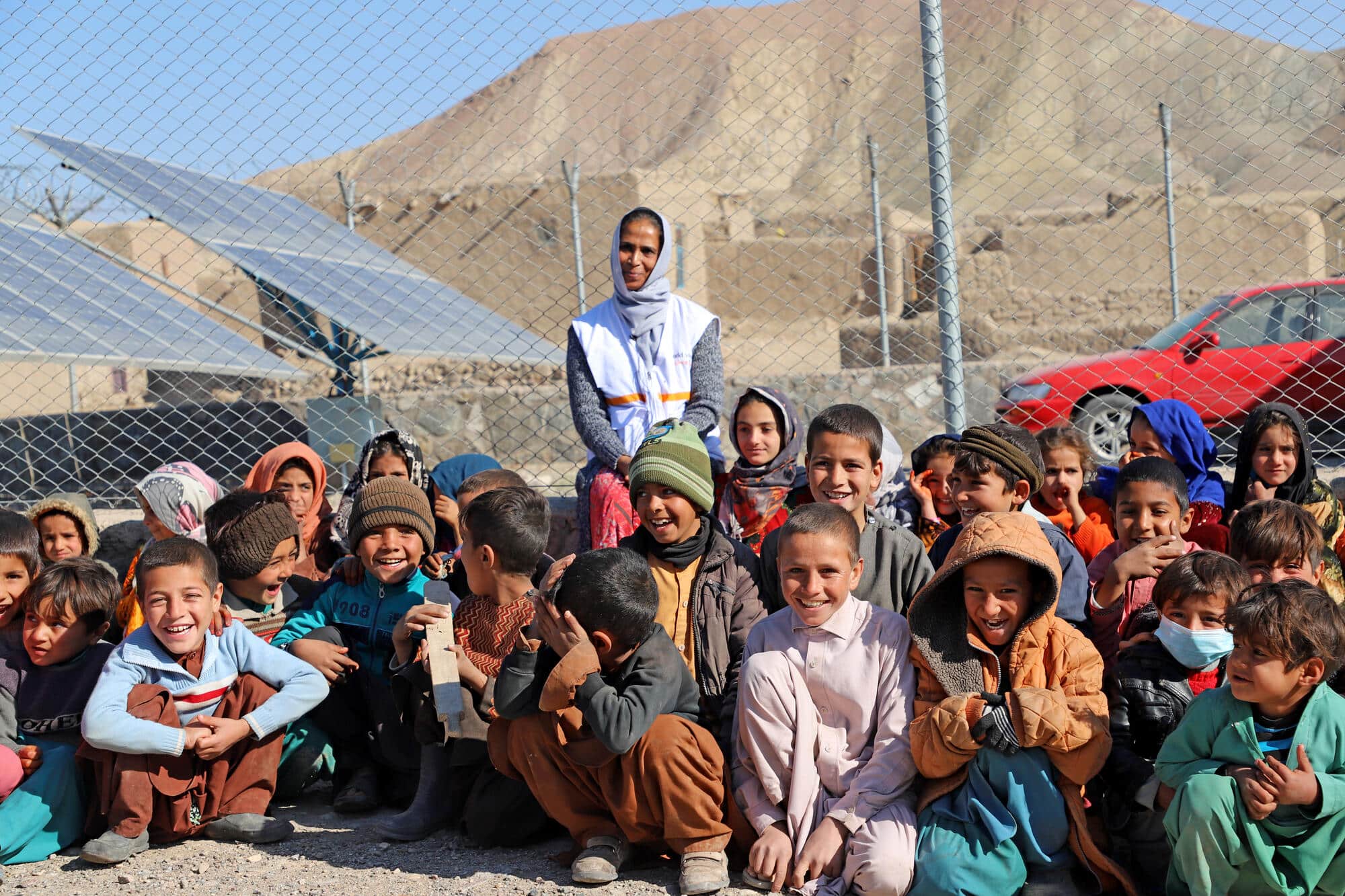
A year ago when Afghanistan fell to the Taliban, Asuntha became the one foreigner left on her staff of 700. “I needed to stay back to give some hope; to show commitment to the Afghan population,” said Asuntha.
However, this past year, she has had to operate in an entirely different setting from when she first started.
Last one standing
One year ago, on August 15, 2021, the Taliban wrested control of the war-torn nation from an elected government amid a full American military withdrawal.
For weeks, the world watched Afghans swarm Kabul International Airport as panic gripped the people. International commentators speculated on what this meant for the country.
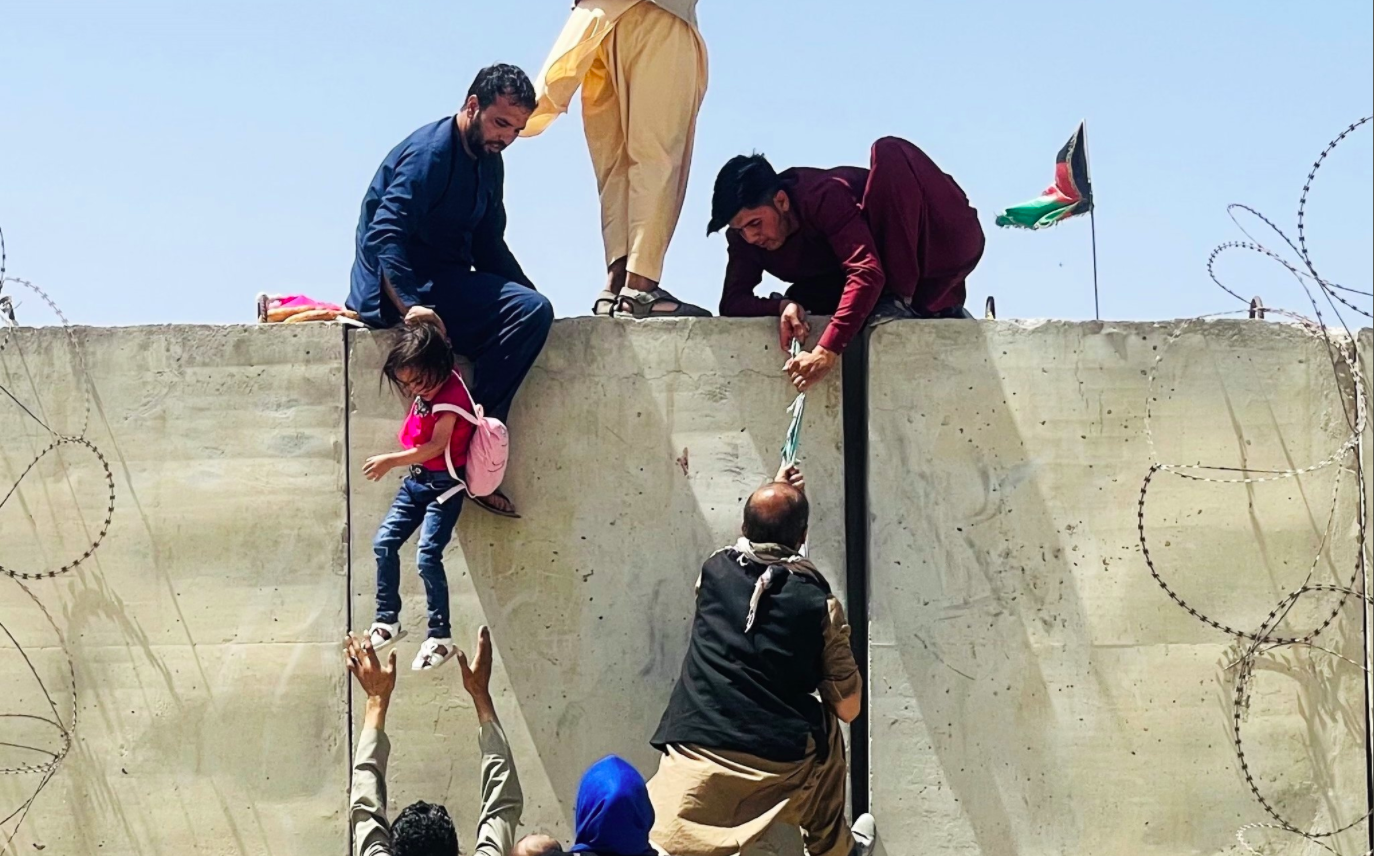
Twitter screengrab of Afghans fleeing with their children last August.
“I remember how chaotic and frustrating the situation was,” said Asuntha, who witnessed the desperate mass evacuation when she went to the airport to assess the situation for herself.
“There was so much fear. You could feel that people were really worried about their lives, worried about the future.”
Only one year into her role at the time, she became the one foreigner left on her staff of 700. Everyone else was evacuated or decided to return home.
The Indian embassy and World Vision security teams were calling – if she decided to go, plans needed to be made quickly. Time was of the utmost importance.
But the night before the Taliban swept into Kabul, Asuntha was alone in her accommodation when she made the decision to stay.
To stay or to go?
Staying in the country was a difficult choice because of the risk to her safety.
“Every day is a miracle in Afghanistan,” Asuntha said soberly.
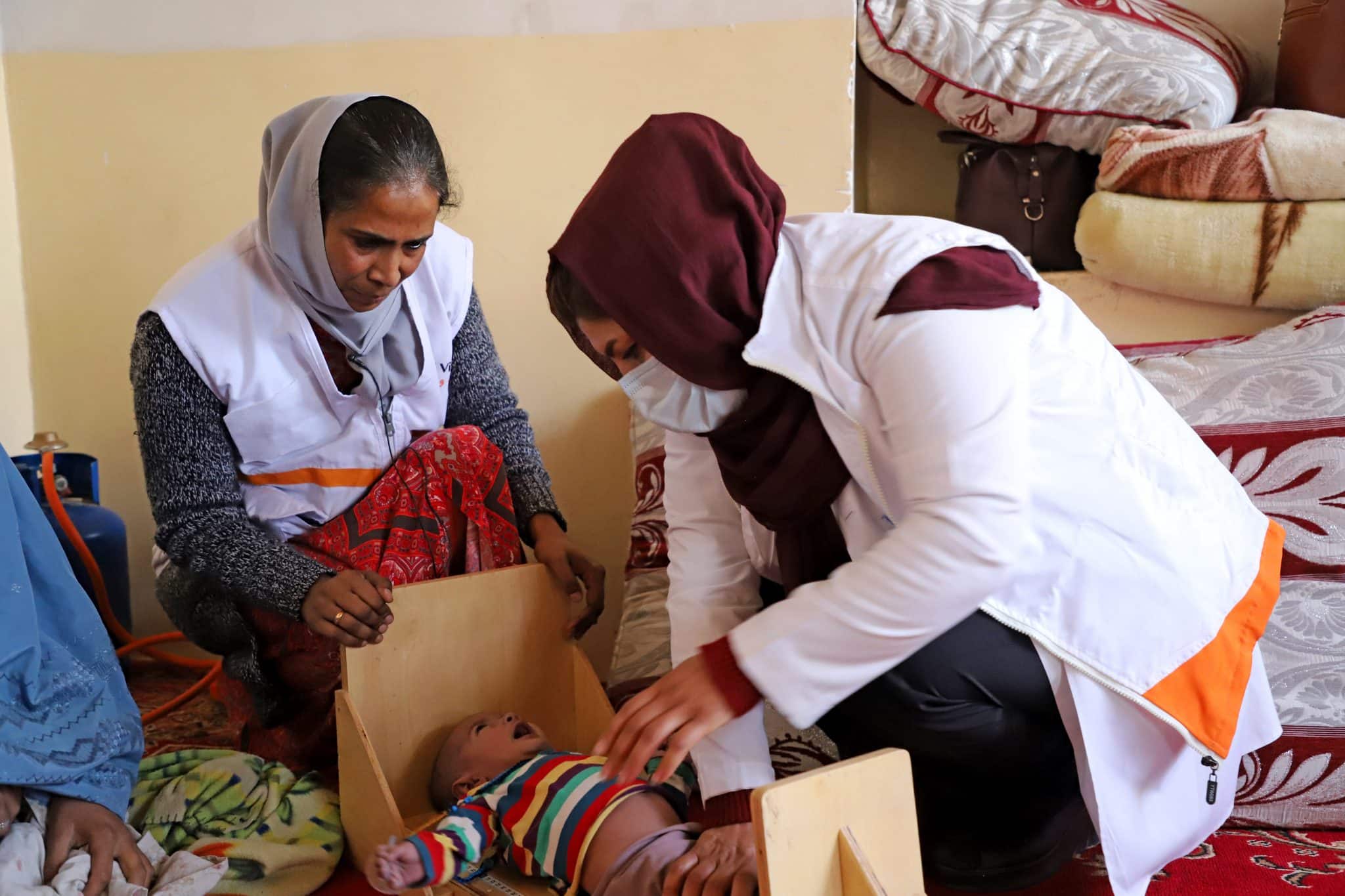
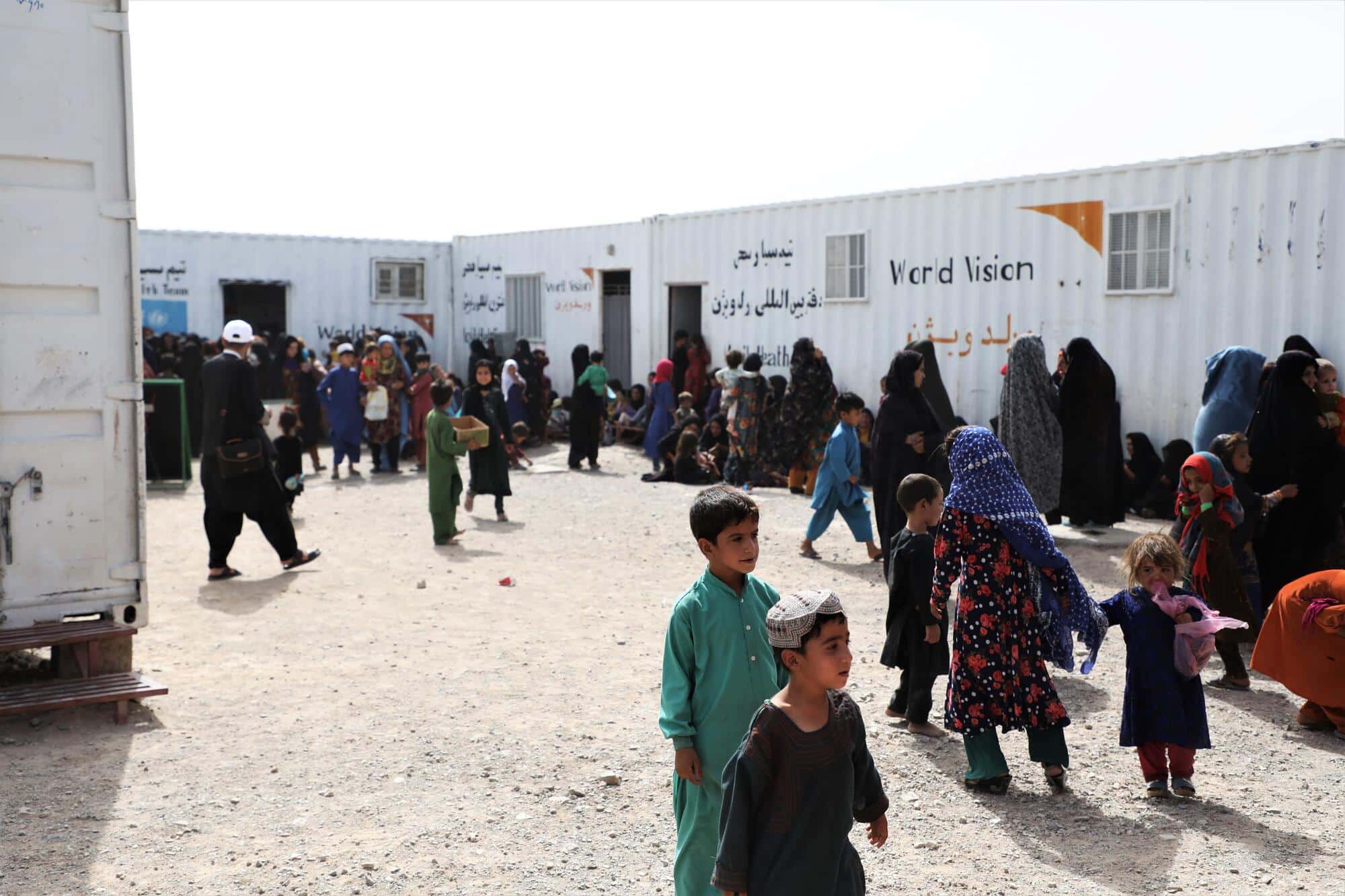
Locals at one of the 41 mobile health centres run by World Vision in four provinces including Herat where it is headquartered.
“Your life is not really in your hands. There’s no surety for life in this country.
“So at the end of the day, if all my staff and I are still alive, I am so happy that nothing has happened.”
For one, she’s a female. No one knew how the Taliban would react to foreign women staying back in this country.
“I knew we needed to stay back to give some hope, to show commitment to the Afghan population.”
In addition, World Vision International is not just a humanitarian organisation, but a one based on Christian values.
But while she was praying and asking God whether she ought to stay or go, Asuntha felt a strong prompting from God: She knew He had prepared her for the decision by “creating a kind of platform” where she did not need to worry about anything except what was in front of her.
A few years prior, both her parents had passed away unexpectedly within a few years of each other. As their main caregiver, Asuntha suddenly found herself free to serve the people of Afghanistan.
“If either of my parents had been alive, I wouldn’t have decided to stay,” Asuntha admitted.
She felt God telling her that He had a purpose for her life – and that He was calling her to serve Afghans: To take the risk of staying and through her choices to show God’s love and the commitment of World Vision to the Afghan people especially to children.
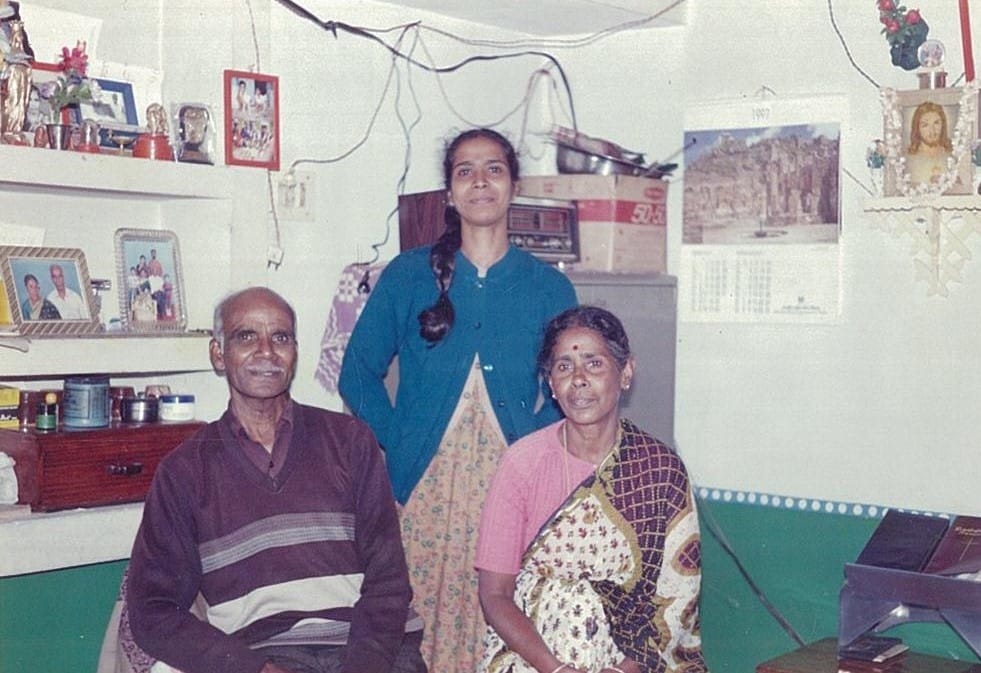 Ashunta (centre) with her parents in an old photo. She had been their main caregiver until their passing several years ago.
Ashunta (centre) with her parents in an old photo. She had been their main caregiver until their passing several years ago.
“Whichever decision I made would have huge implications, not only for me, but also for the organisation,” she said.
Asuntha explained: “That was a time of great anxiety – especially for my own staff. I knew we needed to stay back to give some hope; to show commitment to the Afghan population that World Vision would stay on with you.”
Asuntha, who travelled to visit the various field offices in Afghanistan shortly after the takeover, was often met with surprise. “It was risky for women. People thought all the foreigners had left. So that sent a clear message.”
Reaching 2 million
As soon as they had taken over, the Taliban started making their rounds – many humanitarian organisations had closed their country offices and evacuated staff out of Afghanistan so the Taliban were surprised to see Asuntha and welcomed her.
Asuntha described the Taliban whom she met in Kabul as “cordial”. Asuntha, who had been an activist, and campaigning for rights in India when she was fresh out of school, expressed the need for humanitarian organisations to stay back and serve the Afghan communities.
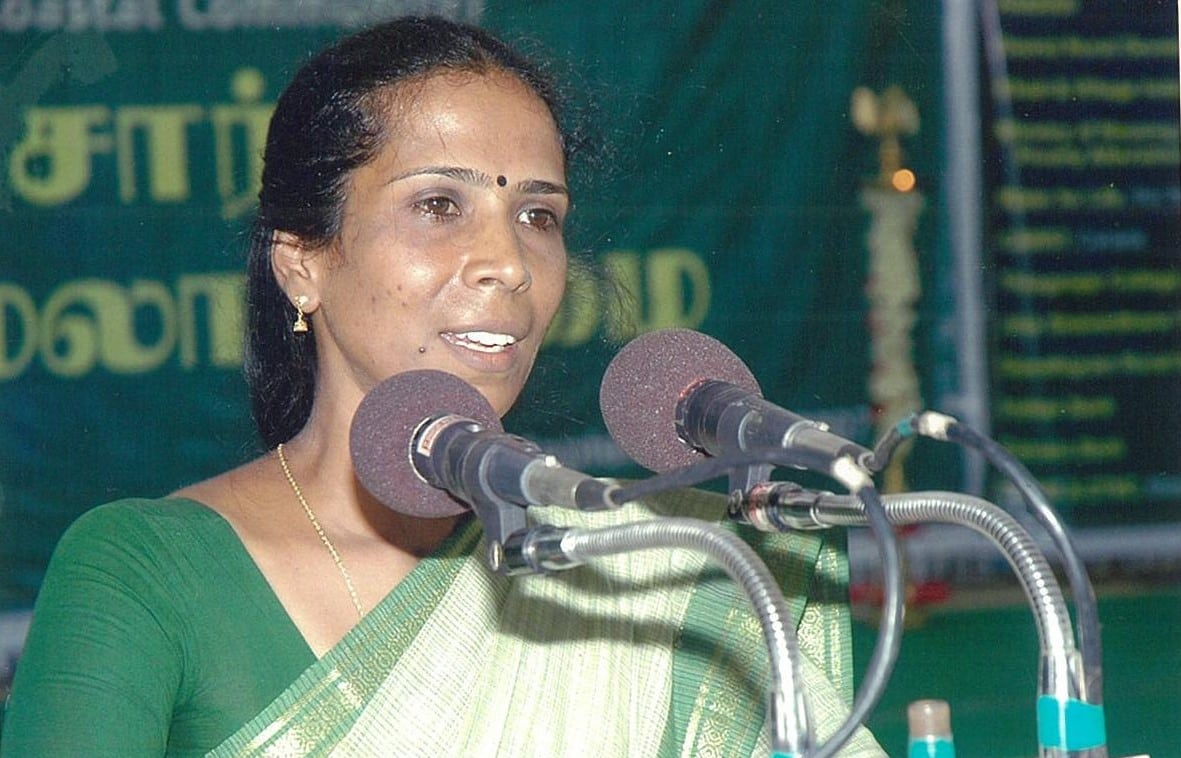
Asuntha speaking at a Women’s Forum in Chennai in 1998. Human rights is a passion which has informed her choice of studies and work. She had been an activist before turning her focus to humanitarian work after the 2004 tsunami.
World Vision is one of the few humanitarian organisations that kept its presence in Afghanistan during the tumultuous transition. Doing so brought them respect and credibility.
With international sanctions imposed and a collapse of the economy, humanitarian relief was sorely needed.
Asuntha said, “They knew we had worked in Taliban-controlled areas for the last 20 years. They are very clear that our focus in the country is to support the vulnerable children.”

A mother feeding her child with a nutrition package received from a World Vision mobile health centre.
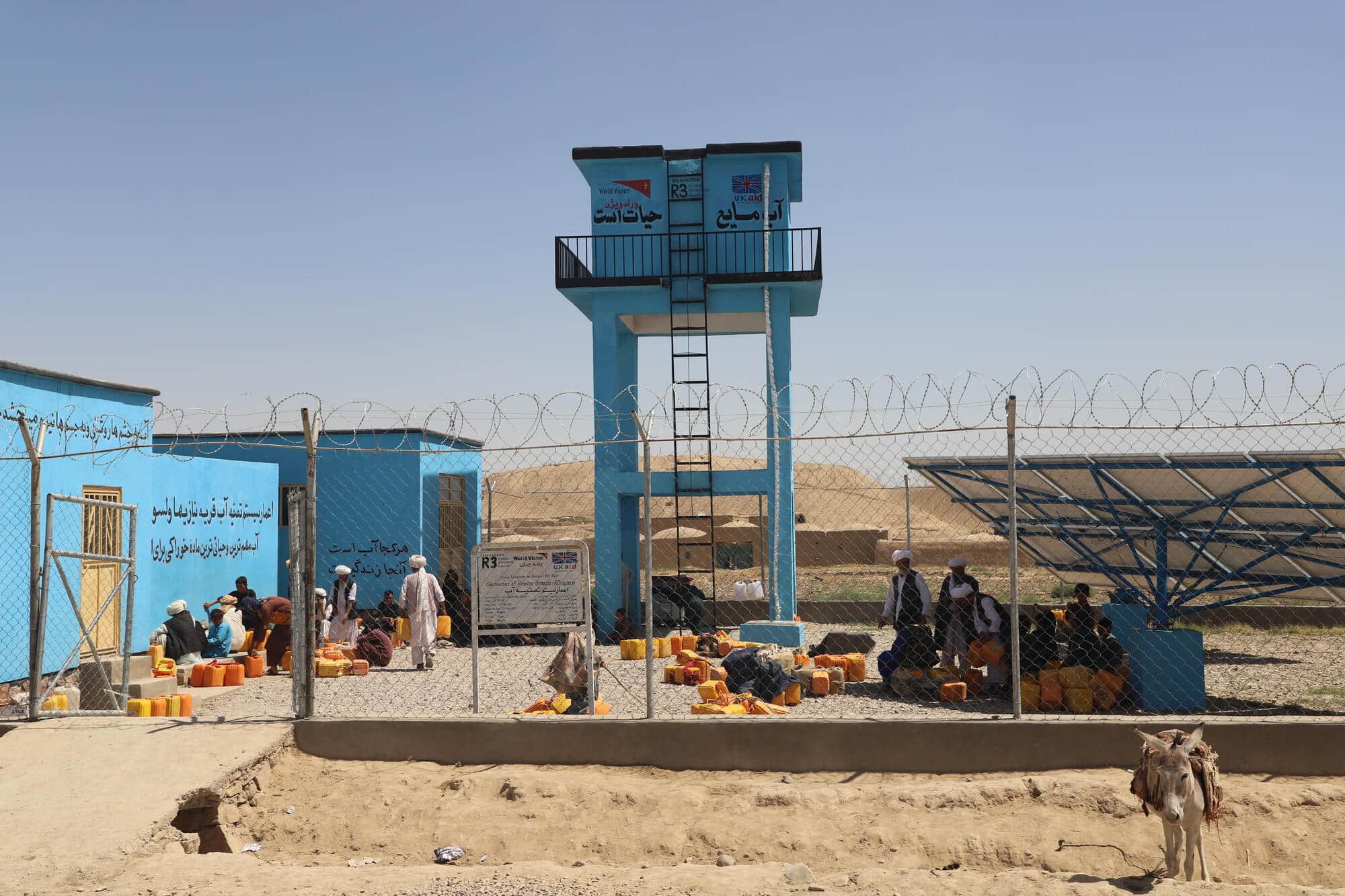
A water purification centre built by World Vision to provide families and children with safe drinking water. The years of conflict have caused extensive damage to the country’s infrastructure.
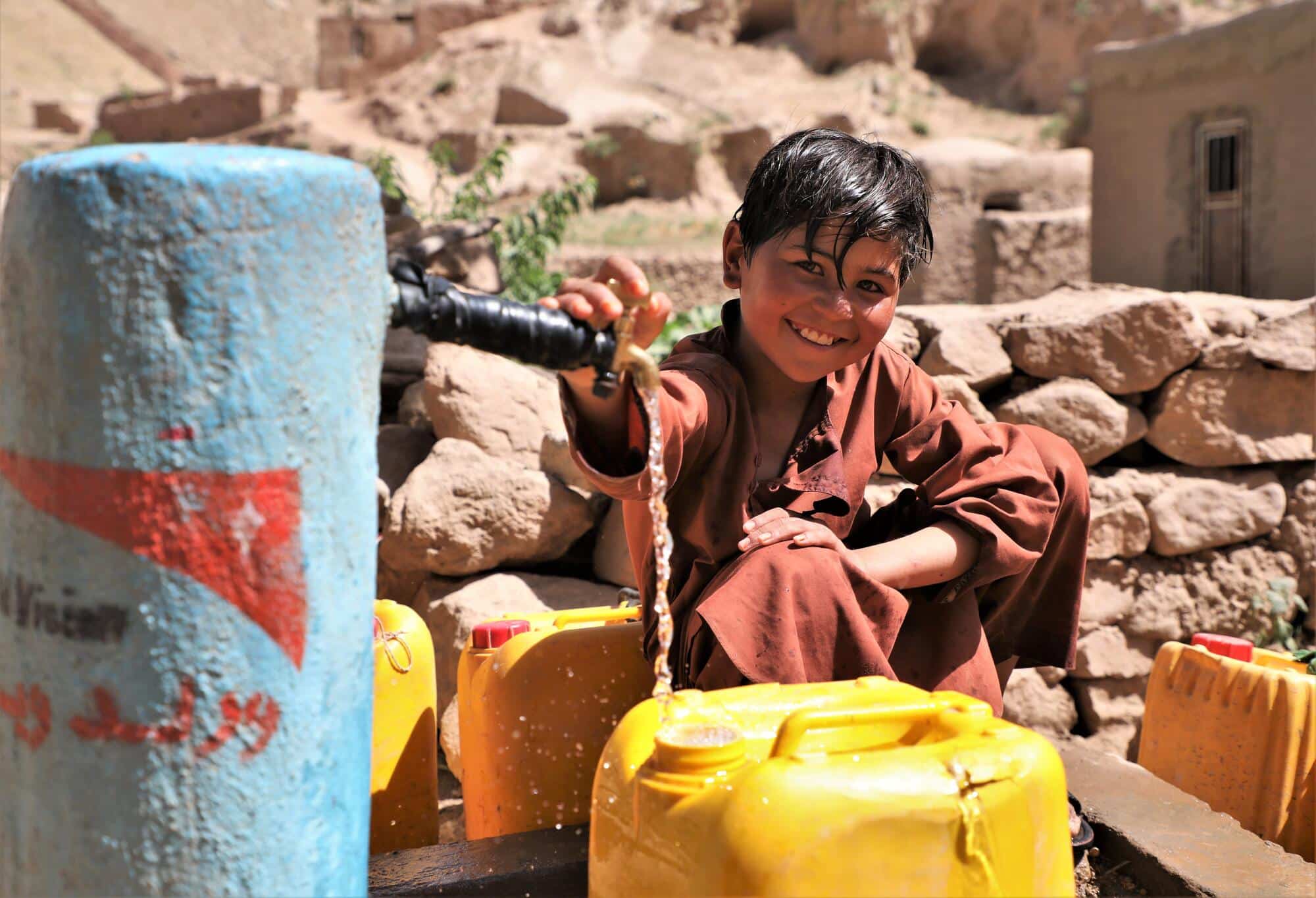
A boy fetches clean water from a water source built by World Vision.
World Vision in Afghanistan is a child-focused organisation that primarily engages children through humanitarian intervention, development and education running mobile health clinics, rebuilding damaged water structures and providing community-based education alongside food distribution and cash-for-work programs.
With over 700 people on staff, WV has reached out to over two million people in the past one year in Afghanistan.
Negotiating for the vulnerable
Right off the bat, Asuntha reiterated her position as the leader of World Vision in Afghanistan and stated that she was the one who would be meeting and negotiating with the Taliban.
But her point was not always well-received, Asuntha said. The Taliban believed in, and fought for, a country where women were not allowed in public life and were supposed to be home, looking after the family. So it was difficult for some Taliban to meet with a woman and they often postponed meetings with her.
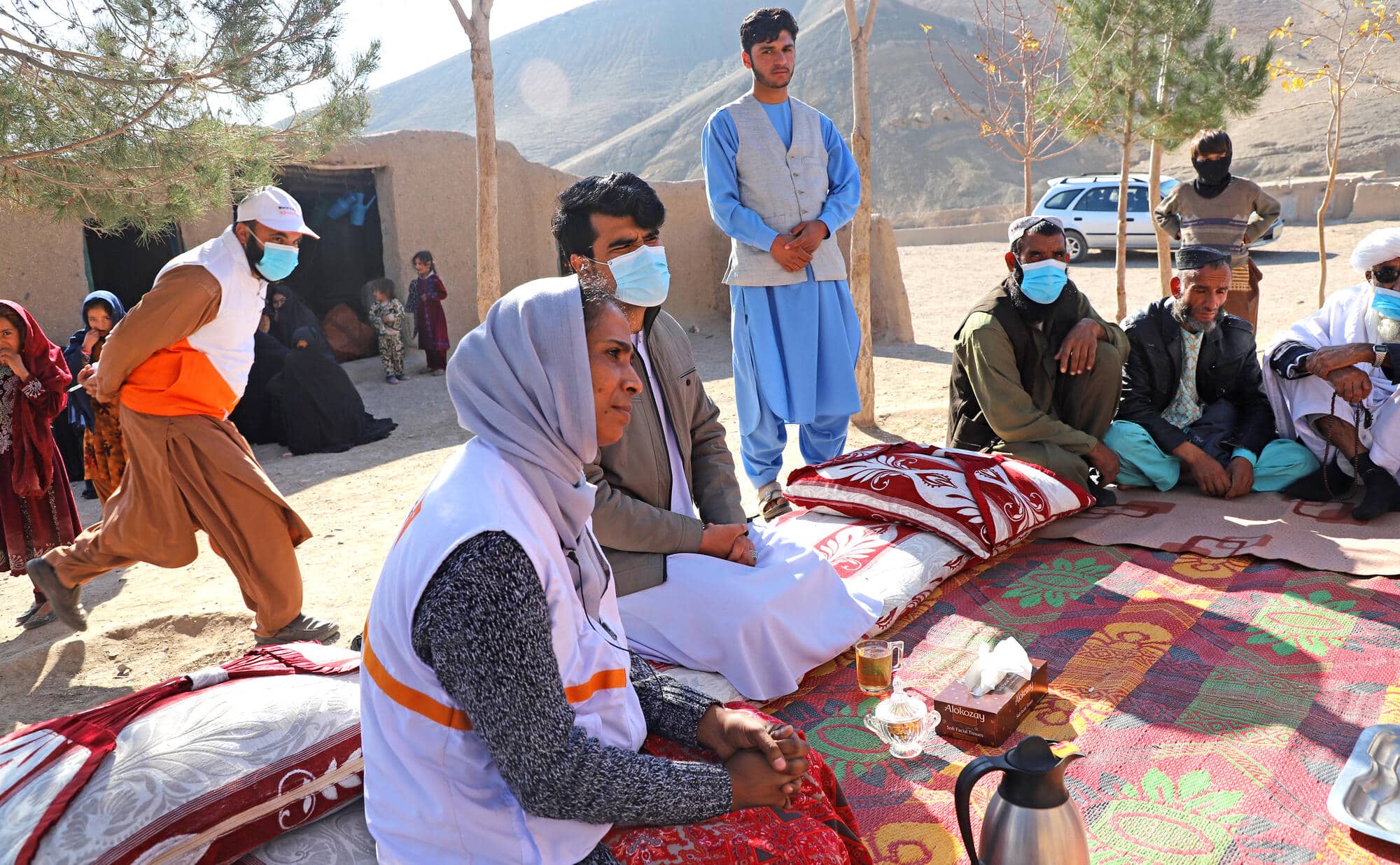
Asuntha hearing concerns and needs from the community in Herat during a visit.
Still, she persevered.
“No, we need to have this meeting. As the leader of this organisation, I will be the one talking to you. I’m not going to send some representative,” she would persuade them.
“We have to persist in serving the people here.”
“I have to make sure that they recognise me as a human being who can talk to them.”
During such meetings with the Taliban, Asuntha shares the mission of World Vision Afghanistan and reassures them of the organisation’s transparency. “They know we are not up to any other business,” she added.
Still, not long after the takeover, the Taliban started implementing more and more restrictions, not only for World Vision but for all the humanitarian organisations, intervening in everything from the recruitment process to beneficiary selection and even to getting memoranda signed.
“We have to persist in serving the people here,” said Asuntha.
It is difficult, but Asuntha is unfazed: “This is God’s work. He has led us here and if He wants us here, He will find the solutions for us.”
The dreams of women
In a sudden move, the Taliban decreed that women were no longer able to work in fields outside of healthcare and education.
“This is God’s work. He has led us here and if He wants us here, He will find the solutions for us.”
“It was a big blow,” Asuntha said. WV has many women on staff and on the ground. After the takeover when the economy collapsed, many of them were the sole breadwinners who had to feed, on average, 15 people.
Afghanistan culture is big on sharing – not just with extended families, but with anyone who is in need. With the cost of food skyrocketing in the past one year and over 90% of the population facing severe food insecurity, WV’s women staff were in precarious positions.
“I bear additional responsibility as a woman,” she added. “I cannot say, it is ok for local women to stay home and not work as long as I’m able to work as a foreign woman.”
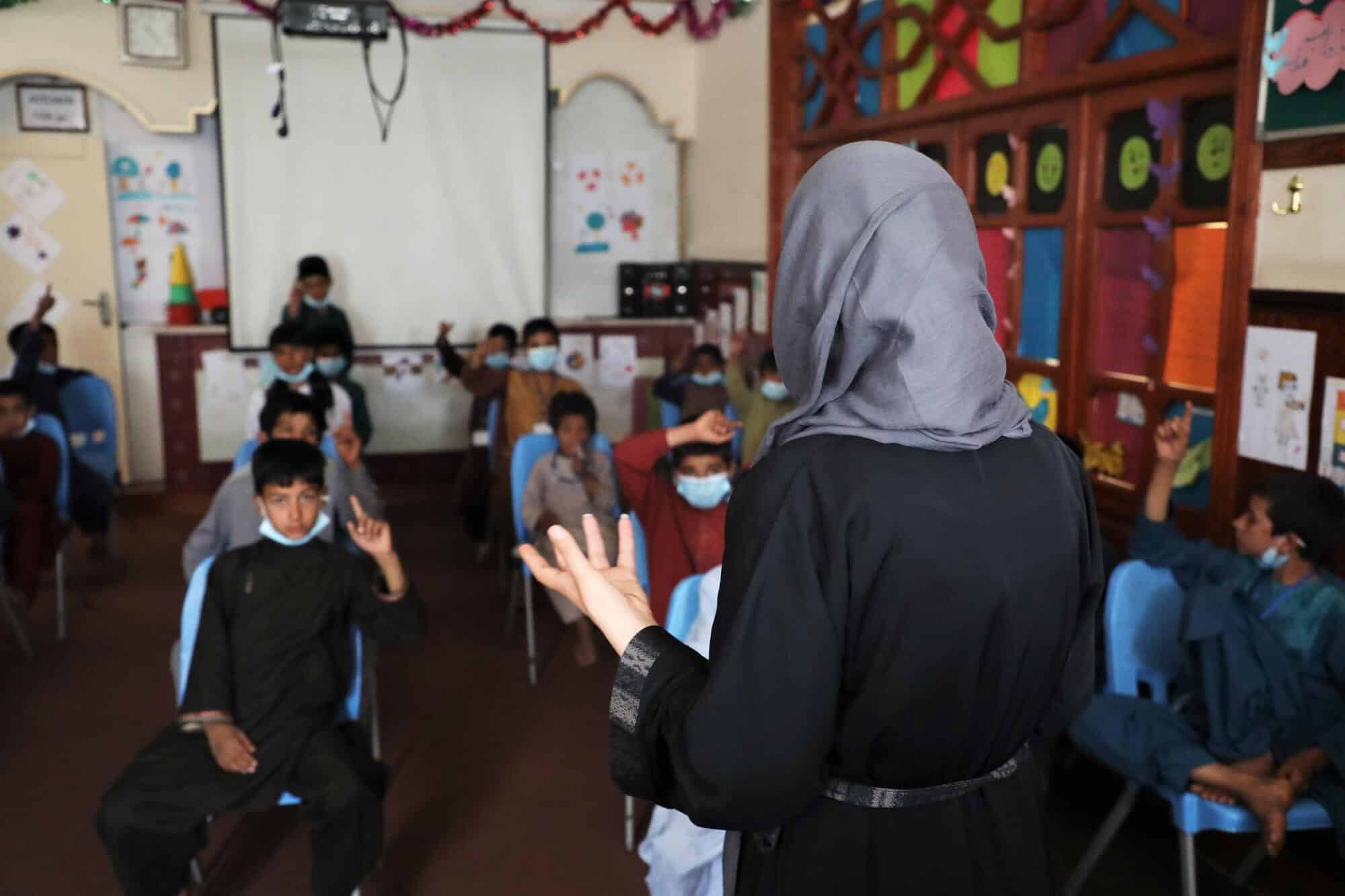
World Vision staff providing education services for children. To date, girls are still barred from secondary school.
Going into the meeting with the Taliban to discuss the issue, however, Asuntha prayed: “Today’s meeting, You speak, God. You are the one who has to change their hearts and minds to see that women are also human beings.”
Today, World Vision is one of the handful of organisations in Afghanistan which employs women.
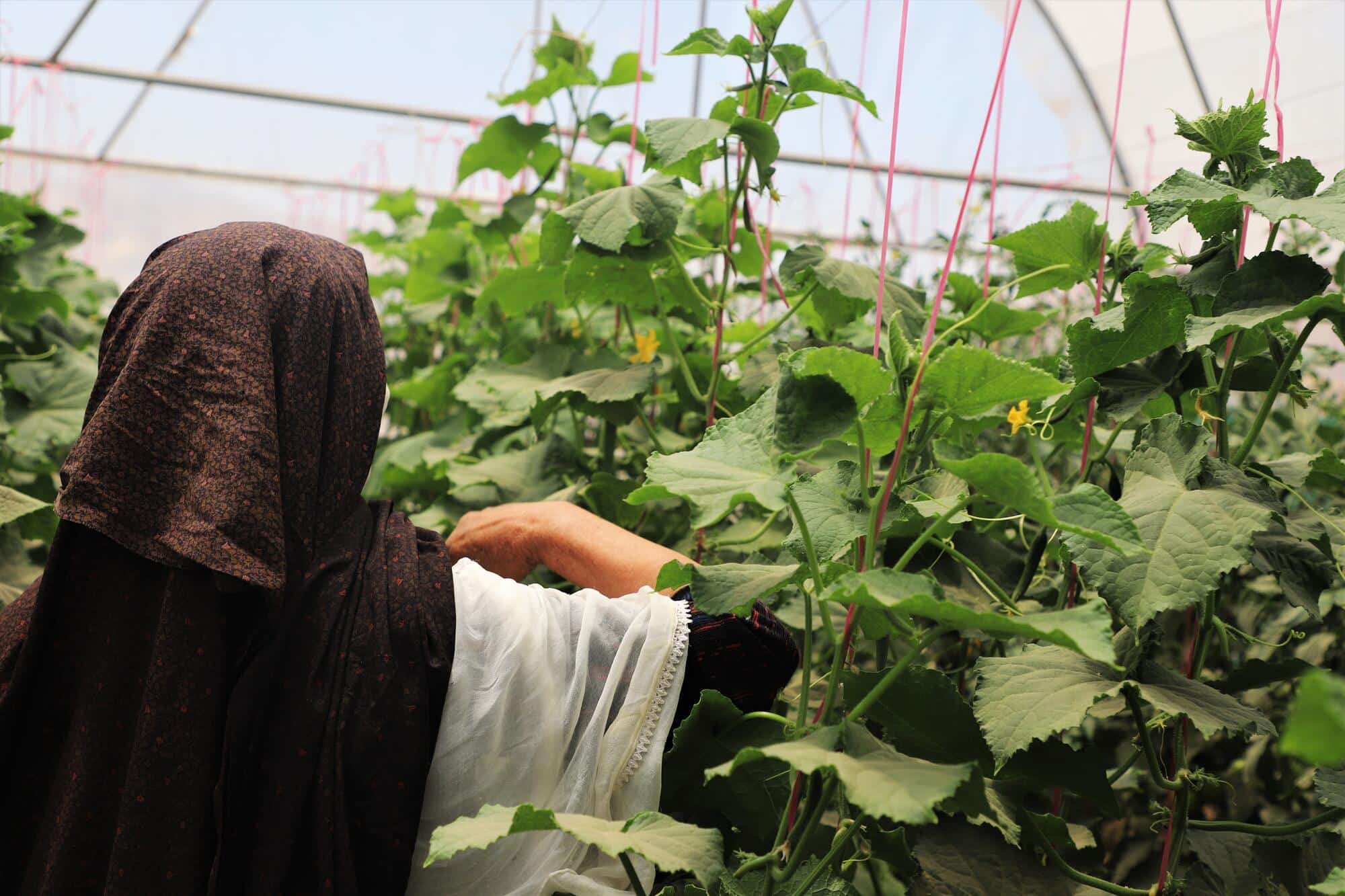
A woman working in her greenhouse provided by World Vision to earn income for her family. In Afghan culture, families average about 15 people each. The UN estimates that another 900,000 jobs could be lost this year as the economy disintegrates. Already, over 25 million people are living in poverty, with less than 5% of the population who are able to afford three meals a day.
This victory, however, has limited range, with many restrictions imposed. Even in education, the Taliban reneged on its promise of reopening schools for girls above sixth grade.
“When I look at Christ, He was a revolutionary who fought for the cause of others.”
Asuntha shared: “Honestly, if there were any opportunity, many of my women staff would leave the country.
“And they would do it today.
“There are many dreams that will not be realised,” Asuntha acknowledged. But she is determined to make a difference and is particularly attuned to the fears and anxieties that the women have about their future and the future of their children.
She comes from a very traditional Indian family that had a similar view of women and their role in society, but from a young age, she has had other views.
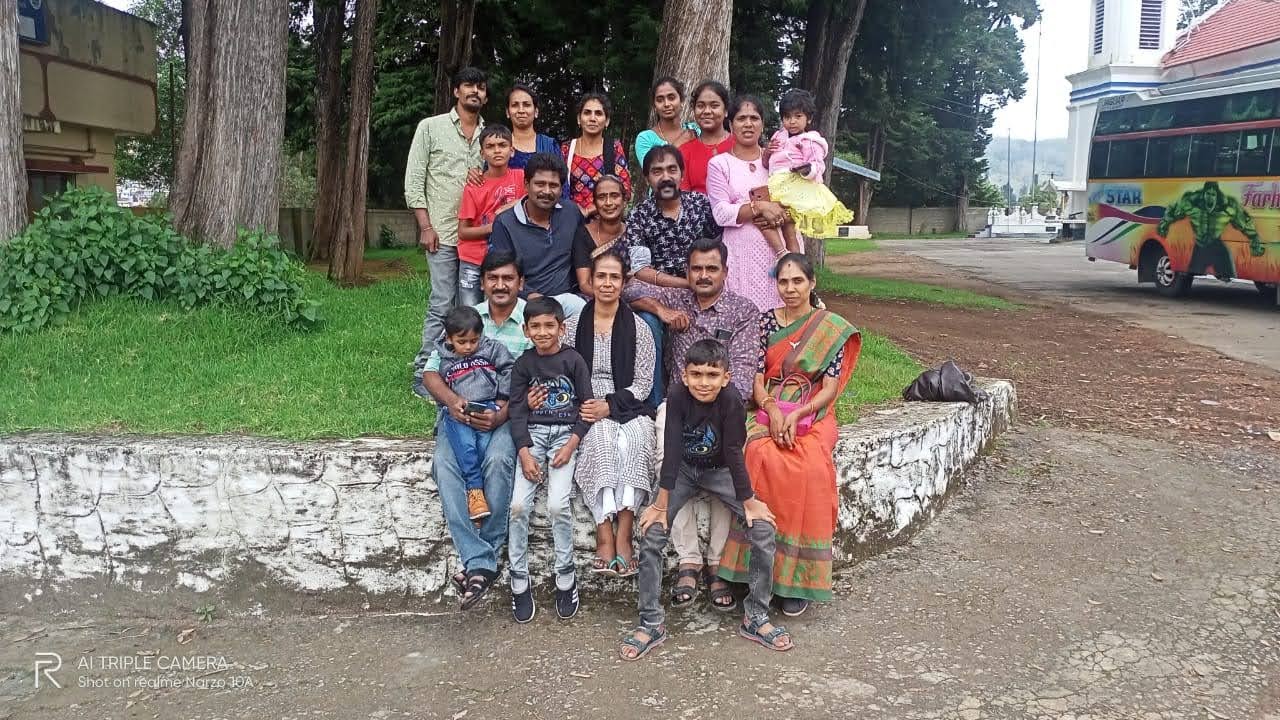
Asuntha (centre with black scarf) with her niece and nephews and their children. She is proud of her nieces whom she calls “strong women”. They have followed in her footsteps and started working.
“I used to be known as very, very stubborn when I was growing up. Once I decide, I stand by it,” she said. At 15, she declared to her parents that she did not want to get married. And when she came of age, Asuntha started working, eventually travelling and living in different places alone.
Her career in humanitarian work has taken her to places like the Philippines, Iraq, Sudan, Sri Lanka and Bangladesh.
Afghanistan, however, remains closest to her heart.
Father and daughter
“Speaking about the rights of children in Afghanistan is my greatest passion,” she said. “When I look at Christ, He was a revolutionary who fought for the cause of others. He could question anybody who did not do the right thing, right? He went around helping people, but He always raised his voice when there was injustice. He was not scared nor passive.”
“In this whole creation story, I’m working with God and I’m part of His plan. That gives me lots of joy.”
Asuntha thrives on her quiet mornings of prayer; meditation helps centre her for the day. But amidst the volatile uncertainty that she is faced with each day, prayer has become as natural and as constant as breathing.
She gets extensive support from her organisation but circumstances are often beyond human control.
“Ultimately, there is no one I can go to for immediate help except God,” she said. “No one else. It has become a conversation with God: Talking to Him, asking Him what He wants me to do, and how to get it done. A kind of Father-daughter relationship.
She added: “So the idea of partnering with God to serve the people of Afghanistan makes me really happy. That in this whole creation story, I’m working with Him and I’m part of His plan – I am just a small instrument in the beautiful Hand of Hands.
“That gives me lots of joy.”
A call to prayer
To donate to the humanitarian efforts in Afghanistan by World Vision, please click here.
Other countries in crisis and in need of prayer covering:
FOR MORE STORIES LIKE THIS:
We are an independent, non-profit organisation that relies on the generosity of our readers, such as yourself, to continue serving the kingdom. Every dollar donated goes directly back into our editorial coverage.
Would you consider partnering with us in our kingdom work by supporting us financially, either as a one-off donation, or a recurring pledge?
Support Salt&Light